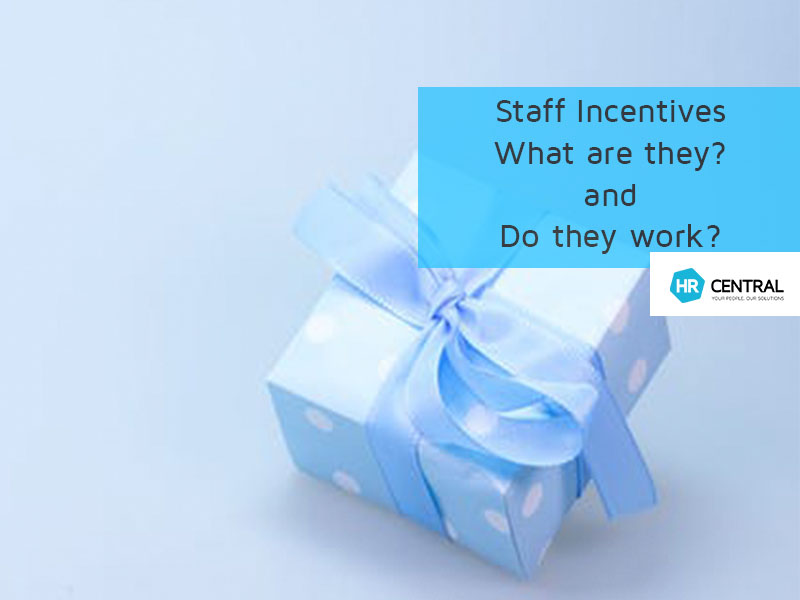If hard work is its own reward as the saying goes, what role do incentives have to play in employee performance?
Its human instinct to enjoy being acknowledged and recognised for our efforts. The common definition of incentives are rewards that link pay to the employee’s performance, however there are numerous ways to incentivise employees – not all of them involving money
Those in favour of incentives argue that they are a great motivator for employees and when done well the competitiveness they spark can increase productivity and aid employee retention. The flipside is that competitiveness can be bad for morale, and encourage aberrant behaviours to achieve a specific end. Financial incentives can encourage spurts of activity for example around the end of financial year rather than consistent and enduring performance. Some say that incentives also discourage creativity as they promote certain behaviours over others and discourage risk taking.
Some popular financial incentives include:
* Sales commissions where the employee shares a cut of the volume of sales or profits
* Piece-rate incentives – employees are rewarded on the basis of their individual output. For example, the number of products packed, or pieces of fruit picked or Soft serves sold.
* Individual bonuses – these are typically one-off rewards which acknowledge specific achievements, for example: Highest sales in the team
* Merit pay involves linking pay rise to past performance to ensure consistent rises
* Offering employees the right to purchase stock at a predetermined price (stock options)
Many of the employers I speak to are keen to reward and acknowledge their staff but don’t have the budget to use financial incentives.
There are lots of creative ways employers can reward their staff that don’t require a huge financial outlay. Indeed, recent studies have shown that money is not the primary motivator for Generation Y and they are motivated by opportunities to contribute.
Some other ways include:
* Acknowledgment in the moment – thank or congratulate the employee in a meeting, feature them in the newsletter, on the office noticeboard or on social media
* Time off to pursue a passion
* A paid day of annual leave to volunteer
* Coffee and cakes break – order in coffees for the team and acknowledge a high performing team member by allowing them to choose a cake or pastries
* Time in lieu
* Spontaneously allow employees to leave work early – what a lovely surprise to receive an email encouraging you to go spend the afternoon in the sun
* A good old fashioned thank you note posted on their door or left on their desk
* A gift voucher or tickets to a show
* Pay for an employee to attend a personal development course or seminar they are interested in
Try this…
Why not encourage a culture amongst your team of incentivising one another? Set up a weekly award at your team meeting in which one employee acknowledges the work of another and shares with the group. The following week that person ‘passes it on’. It’s a great way to build relationships and shine a spotlight on someone who may be flying under the radar….

